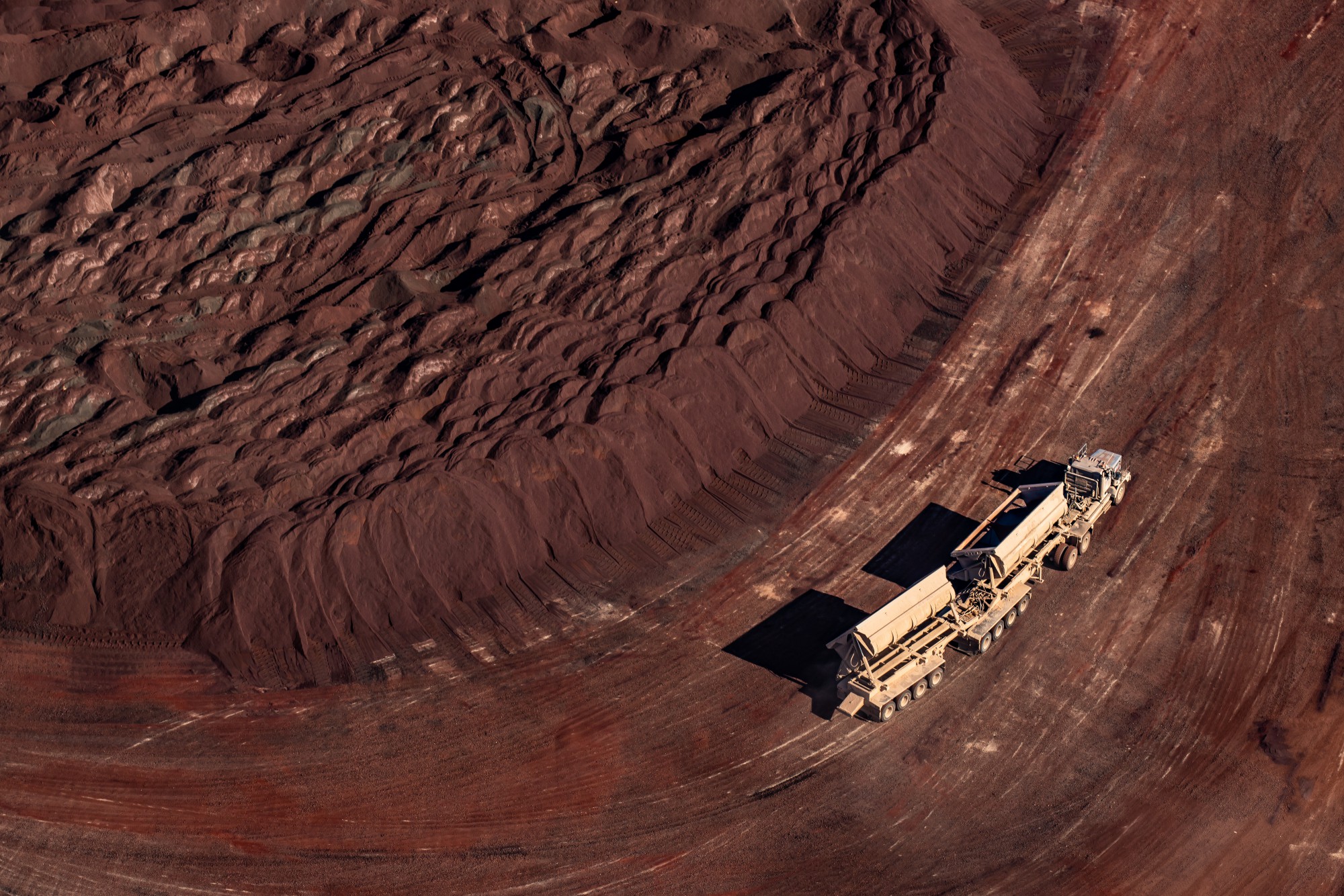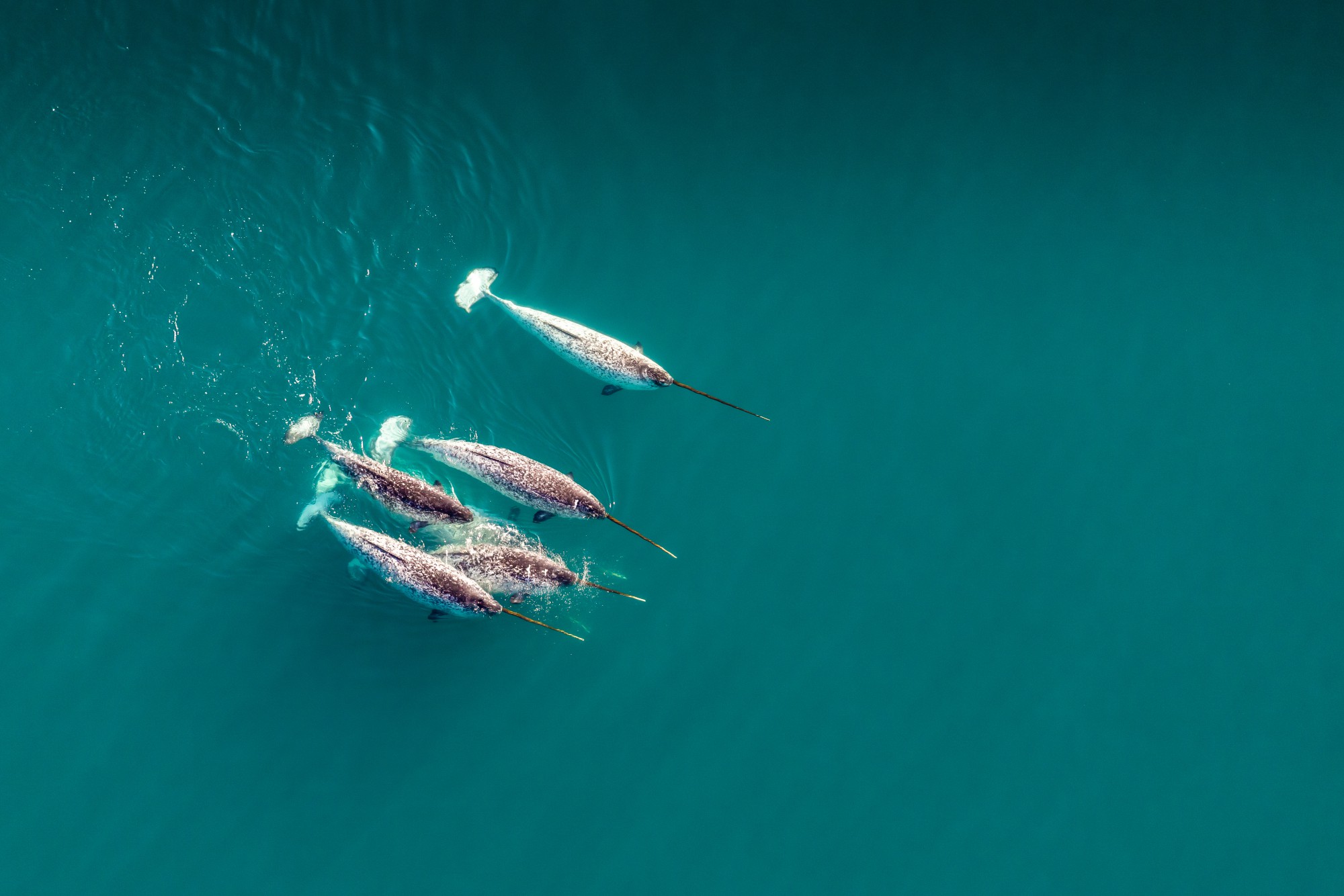
The Narwhal’s in-depth environmental reporting earns 11 national award nominations
From disappearing ice roads to reappearing buffalo, our stories explained the wonder and challenges of...
The Qikiqtani Inuit Association should have addressed environmental concerns with a large mine expansion project on Baffin Island before it inked a benefits deal with the owner, according to a joint letter signed by mayors of five Inuit communities and chairs of local hunters and trappers organizations.
Baffinland Iron Mines wants to double iron ore production at its Mary River Mine on north Baffin Island under a second phase of development, which is being assessed by the Nunavut Impact Review Board. After months of delays due to the COVID-19 pandemic, the signing of the deal led the board to restart hearings. A pre-hearing conference wrapped up this week and the review board has yet to set a date for the final hearings.
The Qikiqtani Inuit Association, which is landlord of the Qikiqtaaluk Region and allows Baffinland to operate there through a commercial lease, signed the Inuit Certainty Agreement with the company on June 16. The agreement outlines benefits to the communities — such as Inuit employment and environmental monitoring efforts — throughout the mine’s life of about 21 years.
But leaders of hamlets and hunting organizations say the Qikiqtani Inuit Association, which represents 15,000 Inuit, signed the agreement prematurely and overlooked community concerns.
Louie Primo, senior administrative officer of Sanirajak (Hall Beach), told The Narwhal it doesn’t make sense to establish benefits with communities that remain concerned about environmental damage that could result from an expanded mine. “It doesn’t really resolve anything,” he said.
The joint letter, dated Aug. 29, was signed by representatives from Sanirajak, Pond Inlet, Igloolik, Arctic Bay and Clyde River.
The letter states that by inking the agreement, the association “has demonstrated a particular interest in the outcome of the hearing process and has a particular bias that must be balanced by a fair and complete consideration of all issues and concerns.”
The letter goes on to state that the agreement was put together “without meaningful input from our organizations” and the communities plan to adequately address possible impacts during the assessment process.
“We respectfully reserve the right to determine agreement with the project based on our own findings; separately and distinct from the ICA and the association’s determination.”
A spokesperson with the association declined to comment, stating that the organization is currently involved in meeting with affected communities.
Letter to Qikiqtani Inuit Association about Inuit Certainty Agreement with Baffinland by The Narwhal on Scribd
Technical meetings, community roundtables and hearings about the Mary River expansion project have been rocky, stopping and starting for almost a year. In March, hearings were cancelled due to the COVID-19 pandemic, which limited both travel and public gatherings. They were rescheduled to be held virtually, but were cancelled due to concerns from intervenors that some people might not be able to participate in that format.
Almost one month after the certainty agreement was signed, Dan Vandal, minister of Northern Affairs, urged the review board to reboot the review process.
In a July 10 letter to the review board, he said “it is appropriate to recommence the formal reconsideration at this time” on the grounds that the Inuit Certainty Agreement was signed and both Baffinland and the Qikiqtani Inuit Association had requested it move ahead.
He further justified this recommendation by citing a section of the Nunavut Planning and Project Assessment Act, which states: “The responsible minister may indicate to the board that a review or a reconsideration of terms and conditions is a priority in relation to other reviews or reconsiderations and may propose a reasonable period within which it must be completed.”
The minister’s letter makes no mention of other projects over which to prioritize, and the hearing was not postponed due to any conflicting projects.

An ore stockpile at the port in Milne Inlet, Nunavut. Photo: Baffinland
Mélanie Mellon, a spokesperson with Crown-Indigenous Relations and Northern Affairs, said the Inuit Certainty Agreement “is a sign of progress, however decisions about the next steps in the Phase 2 reconsideration process are the board’s responsibility.”
With the easing of public health restrictions, the review board scheduled a blend of pre-hearing teleconferences, in-person meetings and video conferences between Aug. 31 and Oct. 1, according to a July 29 letter from Karen Costello, executive director of the review board to interested parties.
“The board has concluded that modifications and new approaches are necessary because an indefinite suspension of the board’s usual in-person proceedings to await a return to normal is unacceptable,” it says.
Once the hearing process is complete, the review board will issue a recommendation to the federal government on whether or not to allow the expansion project to go forward.
A spokesperson for Baffinland didn’t return a request for comment prior to publication.
Baffinland is permitted to ship six million tonnes of iron ore from its port on Milne Inlet, just west of the community of Pond Inlet, located on Eclipse Sound. The company wants to increase production up to 12 million tonnes of iron ore per year and construct a 110-kilometre railway to move that ore from mine to port (it currently uses a tote road).
If the expansion is approved, the number of annual voyages by ore carriers would more than double, from
81 in 2019 to 176.
Community representatives and environmental groups remain concerned about what increased ship traffic could do to sensitive habitats and the marine mammals that rely on them to survive. These concerns were also raised by the Government of Greenland. Earlier this year, the Government of Canada affirmed the Kingdom of Denmark’s right to be part of the expansion project’s assessment due to potential transboundary impacts.
“Overall, the transportation of the iron ore in the Mary River project must be considered one of the greatest threats to marine mammals in the Arctic,” Greenland’s Directorate for the Environment and Nature said in a memo included in a February letter from Denmark to the Canadian government, adding that there are risks of oil spills and collisions with whales.
Greenland’s memo also noted that ice breaking and ship traffic could affect the habitat of seals, walruses and whales, noting that bowhead whales are just returning to the area after virtually disappearing for 100 years.
The region is particularly important to narwhals, with Eclipse Sound, which Milne Inlet opens into, being home to 10 per cent of the world’s population of the species, the memo said.
If Baffinland’s proposed plan goes ahead, noise created by ships could permanently prevent narwhals from feeding in the area, it said.

Greenland has raise concerns about the impacts of shipping on narwhals. Eclipse Sound, which Milne Inlet opens into, is home to about 10 per cent of the world’s population of the species, according to a memo submitted by Greenland. Photo: Baffinland
The Inuit Certainty Agreement includes environmental protection, employment and compensation for wildlife loss. Most benefits — such as a country food study and Inuit-led monitoring program — would be bankrolled by Baffinland, including $3 million for childcare infrastructure in the five affected communities and the extension of a program that offers $400,000 per year for fuel for Pond Inlet harvesters for the remainder of the mine’s life.
Neither Baffinland nor the Qikiqtani Inuit Association would provide The Narwhal with a total dollar figure for the agreement.
“As a transparent Inuit organization, QIA will release and discuss financial matters pertaining to the ICA with its board and impacted communities,” Sima Sahar Zerehi, a spokesperson for the association, wrote in an email to The Narwhal. “It is of utmost importance that this information is communicated and considered by those most impacted when considering whether or not to support the project proposal.”

Iron ore is loaded onto a ship at Baffinland’s port in Milne Inlet. Photo: Baffinland
According to the agreement summary document, the agreement “provides greater Inuit control and oversight, direct community benefits and new and expanded programs for Inuit in communities impacted by the Mary River project.”
The agreement also requires that Baffinland have enough financial security in place to “ensure that the entire Mary River project site will be cleaned up and restored when the project is completed.”
The Qikiqtani Inuit Association will hold money earmarked for reclamation, the document says, and, if there’s a dispute over the amount needed, Baffinland will provide the amount recommended by the association while the issue is settled.
Under the agreement, an adaptive management plan will be produced to monitor impacts from the project and prevent similar impacts in the future.
But Primo said an adaptive management plan may not be enough to address the intensity of the project.
“Let’s say that the activity becomes so great that the marine mammals just all leave and there’s nothing more there for the people to hunt,” he said. “I don’t know how you deal with that with an adaptive management process.”
Get the inside scoop on The Narwhal’s environment and climate reporting by signing up for our free newsletter. On a warm September evening nearly 15...
Continue reading
From disappearing ice roads to reappearing buffalo, our stories explained the wonder and challenges of...

Sitting at the crossroads of journalism and code, we’ve found our perfect match: someone who...

The Protecting Ontario by Unleashing Our Economy Act exempts industry from provincial regulations — putting...
